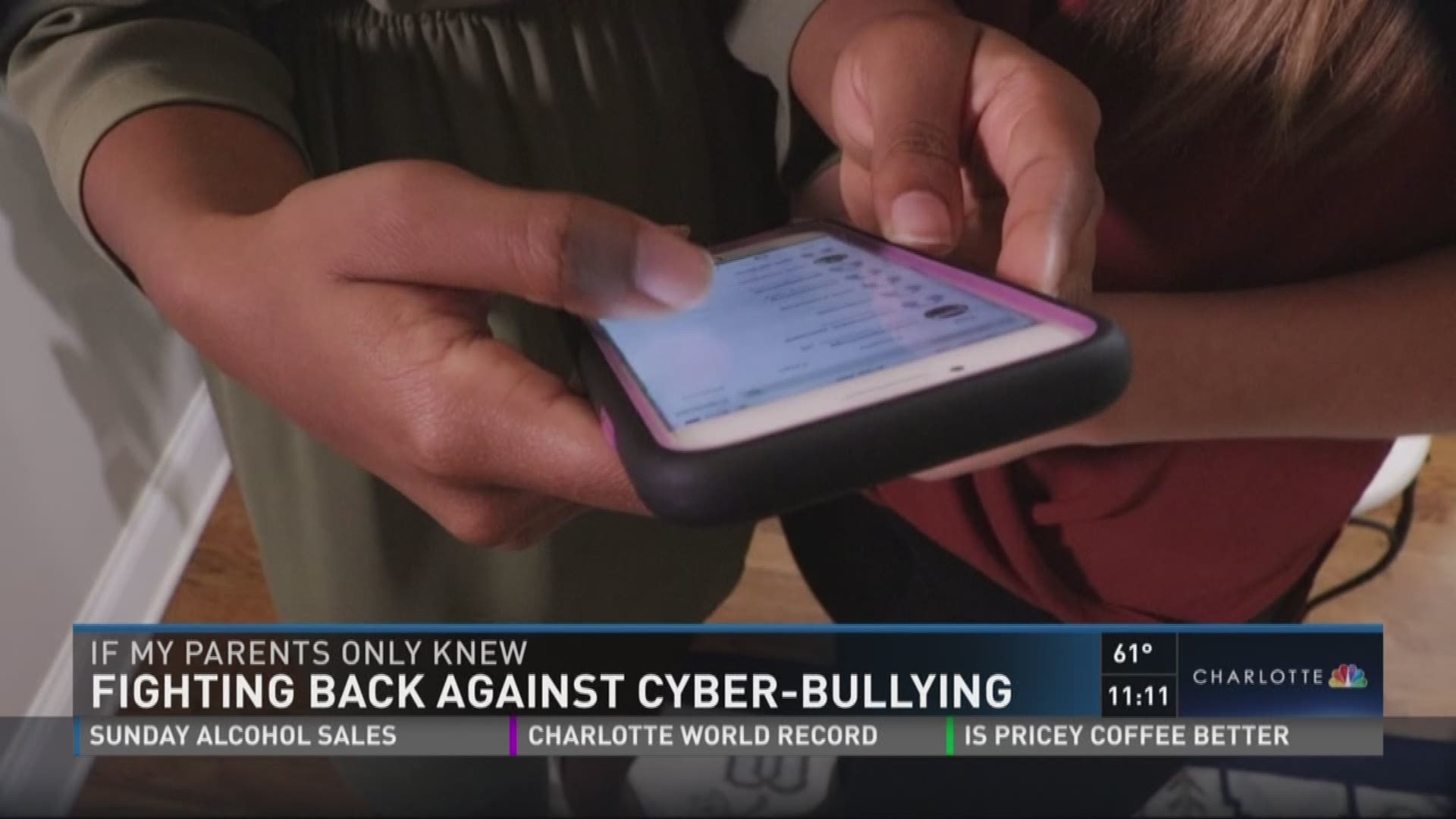A week-long series here on NBC Charlotte, we dig into the issues facing kids growing up in a high-tech world.
CHARLOTTE, N.C. -- We heard from the teens themselves, who tell us bullying doesn't stop when they leave school. It continues online and on social media.
In a recent study, 49 percent of school-aged kids say they were bullied at least once during the past month. And parents -- listen to this – 64 percent of children who were bullied did not report it.
Local kids are fighting back, trying to stop bullying in its tracks.
These days, Carly Cowart is focused on her next cheerleading competition. A year ago, the Mint Hill 12-year-old found herself getting harassed almost daily by cyber bullies.
"It got pretty bad," Cowart said.
Bad enough that police were called to the school to talk to the five girls involved.
"When the kids are saying these mean things to you, how did it make you feel," NBC Charlotte's Fred Shropshire asked Cowart.
"It made me feel really sad and like frustrated because they weren't true and it made me not want to go to school," she said.
"It's hard to watch your kid go through something like that," said Staci Cowart, Carly's mother. "It hurts your heart."
Seventeen-year-old Rosemary Colen attends Hough High School. Cyber bullies targeted her regularly, often for her political views.
"They've called me the n-word and a whole bunch of stuff," Colen said.
Colen’s friend Emma Husk, a 16-year-old at Hough, conducted a nationwide survey on cyber bullying. She found 40 percent of kids say they've experienced cyber bullying. And 75 percent say they've seen it happen to someone else. Husk isn't surprised.
"It's sort of like a new territory and parents might not understand how wide the scope of it is and how easy it is," Husk said.
Melanie Hempe with Families Managing Media says it can happen even with good kids. She explains the frontal cortex in the teenage brain isn't fully developed until age 25. That means that their judgment center and their ability to make good choices based on experience and based on being able to assimilate facts and make a right decision about things is not quite there yet.
The teen girls agree Twitter is one of the most common offenders when it comes to cyber bullies. Instagram's "expose pages" also take cyber bullying to an extreme, as pages are created for the sole purpose of exposing someone for any number of reasons.
It took us less than 30 seconds to find these examples, like "sluts.cms" and "exposingclthoe."
"As soon as you see an expose page, everyone wants to follow it," Colen said.
The pages don't stay up for long, but the damage is quickly done.
There are a lot of adults who can't handle the emotional impact of cyber bullying. So we can't in any way expect our kids to take an ugly comment and not get ascar from it.
Experts recommend delaying a child's social media use as long as possible. Then, enable strict privacy settings. Set limits on usage, from time spent to downloading apps and texting.
Colen says she's learned to take a break from social media from time to time.
"In the case of cyberbullying, just turn everything off and take a moment," she says.
Cowart turned her experience into a way to help others. She created the Just Be Kind movement, a page where kids sign a pledge promising to stand up to bullying and spread random acts of kindness. She even has her own line of shirts urging others to just be kind.
"I didn't want other people to go through what I went through and what other people go through when they get bullied," she said.

